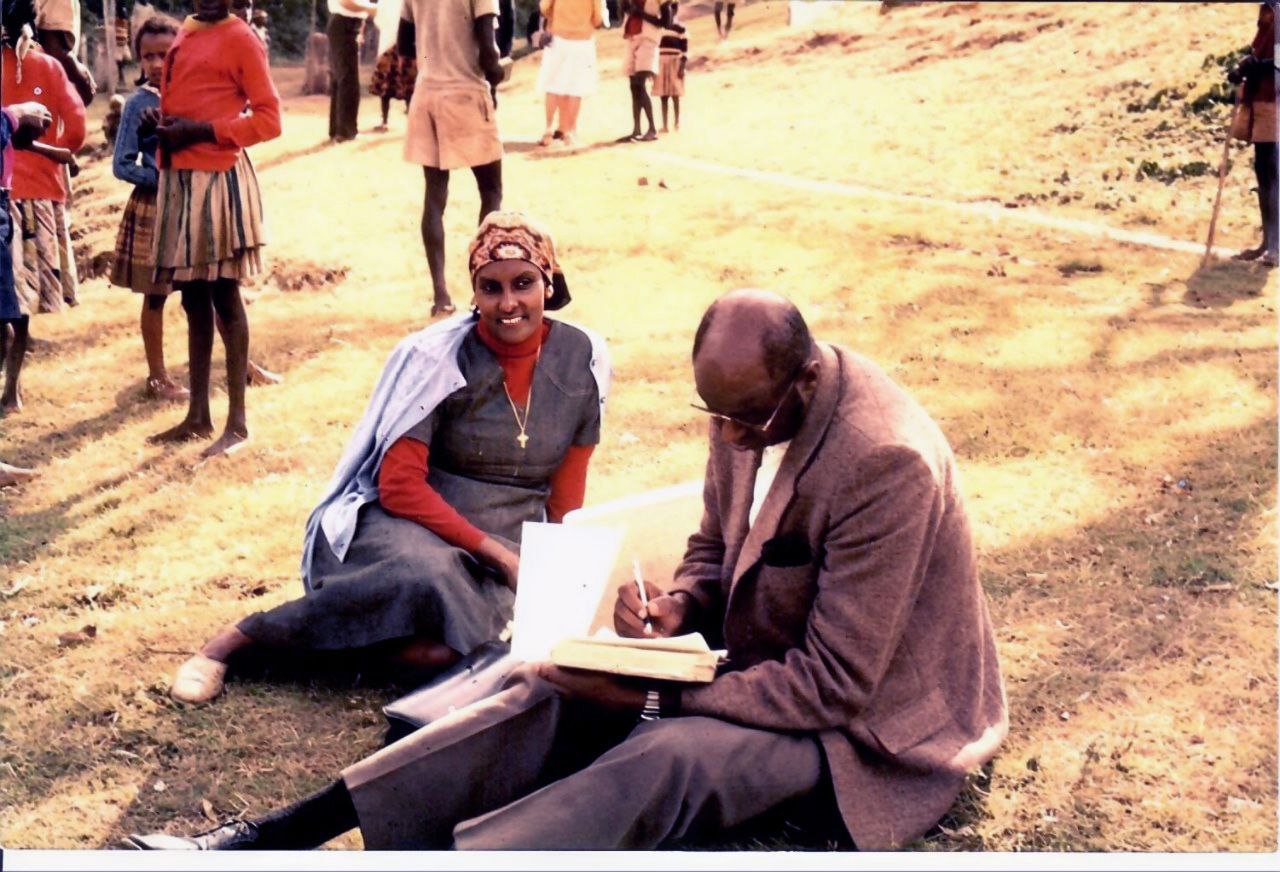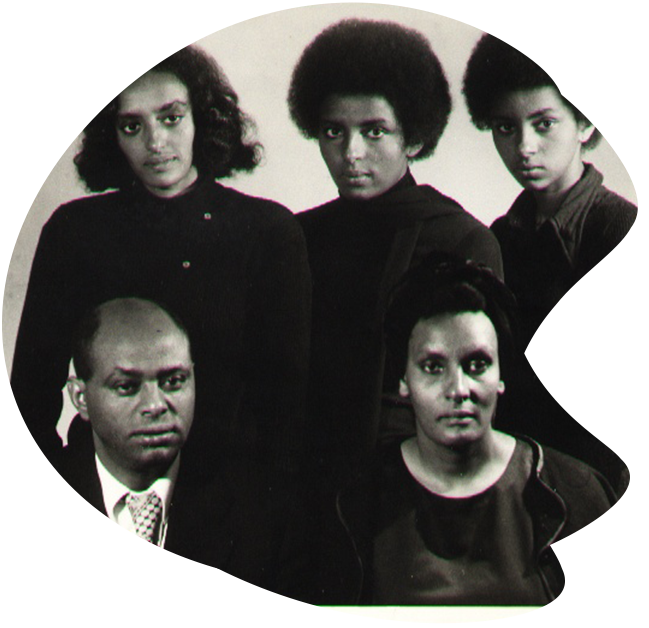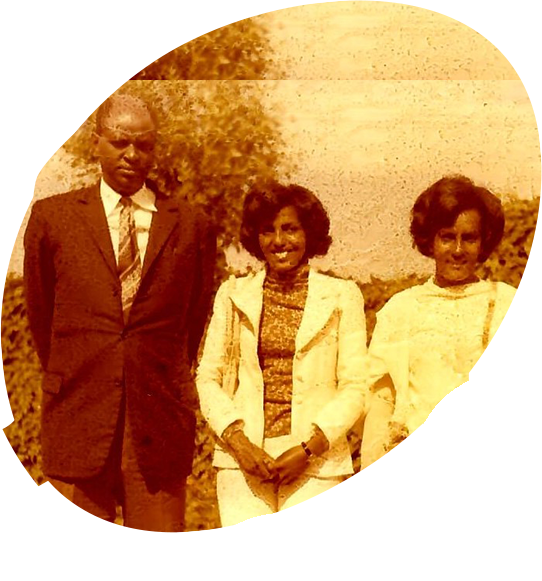

In the heart of Ethiopia, a tale unfolds of divine selection and unyielding dedication to a higher calling. The essence of this story lies in the notion that God meticulously chooses individuals to fulfill His grand mission. In essence, the Bible can be likened to a compilation of biographies, recounting the journeys of countless missionaries who offered their lives to enact His purpose.
The sacred conversations between God and His chosen messengers reveal an eternal quest for individuals willing to undertake His mission. The scriptures echo with His resolute summons, as exemplified in the verse from Jeremiah 1:4, "Before I formed you in the womb, I knew you, before you were born, I set you apart, I appointed you as a prophet to the nations." The narrative of Jeremiah's life exemplifies this divine predetermination, a pattern mirrored in the Apostle Paul's words in Galatians 1:15, "…God, who set me apart from my mother’s womb and called me by His grace… that I might preach Him among the gentiles…
...This concept of divine selection transcends historical confines, multiplying and encompassing missionaries from all corners of the world, every tribe, language, and nation. Among these stories are those of Gudina Tumsa and Tsehay Tolesa, a missionary couple born, wed, served, and perished in Ethiopia. Their tale was undeniably a divine collaboration, a shared destiny to bring the gospel to Ethiopia's untouched frontiers and beyond. Yet, what makes Gudina and Tsehay's story particularly remarkable is the rare harmony with which they worked side by side. Their dedication to the Lord's service was unwavering, leading them to relinquish comforts, leave their children when duty called, endure physical agony, and even face the shadow of death. It's a rarity to witness a marital pair so harmoniously united in their devotion, a couple propelled by an unquenchable passion for their faith and mission.
Theirs is a narrative that mirrors the Biblical couple Priscilla and Aquila, who embarked on missionary journeys with the Apostle Paul, their lives entwined in an unbreakable bond of service. Gudina and Tsehay displayed a similar unison in answering God's call. Their resolve to give everything for God's mission, regardless of the cost, became the defining motif of their shared journey. From early beginnings, both Gudina and Tsehay embraced Christianity in their youth through the influence of Swedish missionaries.
Their paths merged as they pursued careers in the medical field, nursing. A shared passion ignited within them – to share the gospel of love and justice with their compatriots, oppressed spiritually and physically. Tsehay's conviction led her to urge Gudina to leave a promising medical career to fully dedicate himself to ministry. His pastoral training, she believed, was pivotal for the mission ahead, even if it meant enduring hardship in remote areas. This theme of resolute sacrifice echoed throughout their partnership. A turning point arrived when Gudina received a scholarship to study theology in the United States. Despite initial hesitation, he embarked on this educational journey, guided by Tsehay's insistence that his theological education could amplify the reach of God's kingdom. Their partnership was their strength; even as Gudina, without traditional academic prerequisites, flourished at Luther Seminary, evolving from a small-town pastor to an internationally recognized theologian. Gudina's appointment as General Secretary of the Ethiopian Evangelical Church Mekane Yesus (EECMY) led to innovative strides.
Rejecting convention, he envisioned a Wholistic Theology, advocating for the church's engagement in the physical and spiritual well-being of people. Literacy programs, radio broadcasts, development projects – all underscored his commitment to serving both the soul and body. Yet, Gudina's path was rife with challenges. Political shifts, persecution, and imprisonments became part of his narrative. A clash of ideologies with the ruling regimes showcased his determination to hold the church accountable for justice. His prophetic voice reverberated far beyond his immediate sphere, urging churches globally to reflect on their responsibilities. In 1979, Gudina's life was tragically cut short through abduction and murder, a testament to the price he paid for his unwavering faith. For Tsehay, this marked the beginning of her own decade-long ordeal, imprisonment, and unyielding service within prison walls.
Even as she endured physical torture, her indomitable spirit continued to spread the gospel. Tsehay's release heralded a new chapter, one where she fervently continued their shared vision. Despite the heartache of not knowing her husband's fate for thirteen long years, she maintained their legacy. The Gudina Tumsa Foundation and the Biftu Bole Mekane Yesus Church became conduits of their dream, extending aid, education, and the hope of the Gospel to the impoverished. Their story, an enduring testament to faith and commitment, continues to inspire. Gudina and Tsehay, through their unwavering dedication, exemplify the power of divine selection and the transformative impact of two lives intertwined in service to a higher calling.


My parents, Gudina and Tsehay, were born and raised in Ethiopia. They were united in marriage and devoted their lives to serving God. Their union was undoubtedly a providential appointment destined to bring the gospel to the unreached regions of Ethiopia and beyond. Following Gudina's abduction and Tsehay's imprisonment, the mere mention of the name Gudina Tumsa became a topic fraught with danger. Church leaders refrained from inquiring about his whereabouts, fearing potential repercussions for the church's survival.
...Friends were apprehensive for their own safety, while family members remained silent. Gudina's stature, both spiritual and physical (standing at 6ft 7in), prompted his friend Paul Hoffman to question how such a figure could disappear unnoticed. His name and memory seemed to dissipate into obscurity. His prior arrests had already caused significant disruption to the Ethiopian Military government. The regime was compelled to not release him from incarceration, given the threat posed by humanitarian organizations and churches, which could potentially impact the substantial relief and developmental aid on which Ethiopia heavily relied.
Tsehay was cognizant of the trials that lay ahead for her family but struggled to admit it. However, as later revealed through testimony, the vow they had taken at the altar in the presence of the Holy Spirit and the congregation—to stand together in sickness and health, joy and sorrow, blessings and suffering until death—anchored her throughout. Gudina's missionary journey and the tragic fate he met culminated on the night of his abduction while he and Tsehay were returning from a church service. He complied quietly and obediently with his captors, who led him to the Old Palace's chamber of death, where he endured brutal torture and was ultimately killed. Gudina's torment came to an end, but for Tsehay, it marked the commencement of a decade-long traverse through the grim valleys of suffering and imprisonment. Locked in a dark dungeon for thirteen months, she suffered a broken arm and endured beatings that left her feet mangled.
The absence of medical care for her wounds resulted in a severe infection that persisted due to subsequent beatings. The degree of brutality she endured was unparalleled; her wounds were inflicted anew before healing could take place. According to a fellow inmate's testimony, Tsehay never ceased her mission work, despite her injuries and the harsh prison environment. The unceasing preaching of Christ was her imperative. As recounted by a prison-mate, Tsehay, after being tortured and returned to her cell, would drag herself to the wall, striving to stand. There, she would begin to sing hymns, praising God amid the bloodshed. This image, though perhaps bewildering to her fellow prisoners, was her form of mission work. In every circumstance, the gospel of Jesus Christ had to be shared. Beyond the agony of her prison existence, the uncertainty surrounding her husband's whereabouts and the duration of their suffering became unbearably distressing. She clung to the hope that Gudina might be alive in one of Ethiopia's countless prisons.
This hope restrained her from uttering politically sensitive words that could endanger her husband's life. She wished for an end to her misery, finding her suffering devoid of meaning. She faced no formal charges, never appearing in court; even criminals underwent legal proceedings before imprisonment. Her tormentors, lower-ranking military personnel often inebriated, unleashed unexplained anger and insults upon her. While hanging on the bars of her cell, Tsehay would call upon the name of Jesus, leading the men to mockingly question why Jesus did not intervene. A year later, she was transferred to the main prison, where she would spend nine more years. Her unwavering determination and love for the Lord created new avenues for ministry within the prison. An epidemic swept through the overcrowded and unsanitary prison, claiming hundreds of lives daily without medical intervention.
Tsehay gained permission to treat both male and female inmates. Assisted by missionaries from Europe, she provided food and medicine, establishing friendships through her regular visits to patients. In a country where Marxist ideology prevailed and acknowledging God's existence was a criminal offense, she managed to smuggle in countless Bibles. In the dead of night, after curfew, she held clandestine church meetings, where believers and non-believers gathered to hear Bible passages, sing hymns, and pray. She became a beacon of hope. Organizing inmates into small trading groups, she facilitated the production of handicrafts, which were sold by her missionary contacts.
These endeavors generated income, enabling many to support themselves and their families. Her approach mirrored her husband's holistic ministry. Throughout her decade-long imprisonment, her faith remained unshaken. Even in the direst circumstances, she affirmed the righteousness and holiness of God. Every handicraft she produced in prison, whether wood carvings, tablecloths, bags, or decorated pens, bore the inscription of Psalm 46: "God is our refuge and strength, an ever-present help in trouble. Therefore we will not fear, though the earth give way and the mountains fall into the heart of the sea, though its waters roar and foam and the mountains quake with their surging.
The Lord Almighty is with us; the God of Jacob is our fortress." Tsehay persisted in preaching the gospel, providing sustenance and clothing to prisoners. She partnered with her children to establish the Gudina Tumsa Foundation (GTF) to continue Gudina's vision. Gudina's life ended in 1979, and Tsehay passed away in 2014, but their vision lives on through GTF and the Biftu Bole Mekane Yesus Church. They continue to spread the gospel of Jesus Christ to the marginalized in Ethiopia's remotest villages, offering water to the thirsty, food to the hungry, and education to the underprivileged. Periodically, all Ethiopian churches convene for theological seminars, reflecting on the legacy of Gudina Tumsa, the man who sacrificed his life for the Church of Jesus Christ.


A compilation of information the study of Gudina Tumsa

History of Gudina Gumsa The Importance of the Man, Reverend and Martyr Gudina Tumsa
his section was inspired by the writing of Gudina Tumsa from his compiled writings—Witness and Discipleship. The section is meant to analyze Gudina’s thought pattern, make it contextual to the present day and use his deep insight to..
Learn more